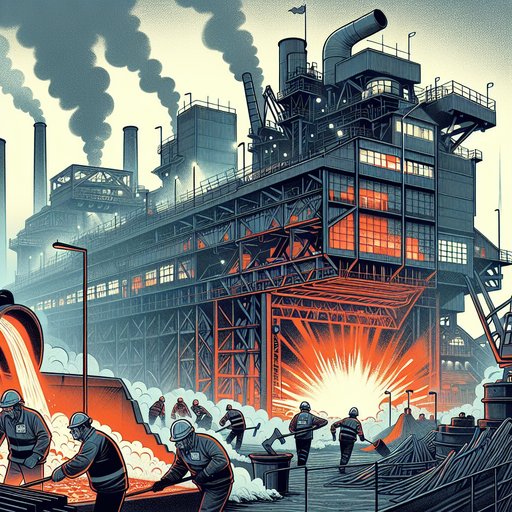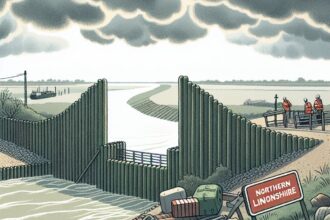In a fervent bid to save the steelworks of Scunthorpe, a community rallies, despite the feeling of helplessness. The narrative of the town’s steel industry is steeped in history, playing a crucial role in the D-Day landings during World War Two. Today, the community finds itself on the brink of another battle, this time for survival. As the threat of 25% tariffs on steel exports to the US looms and negotiations continue between the UK government and British Steel’s Chinese owners, the future of Scunthorpe’s steelmaking industry hangs in the balance. ‘It’s disconcerting because the decision seems beyond our control,’ says local resident Kerensa Smith. For the Smith family and many others, the future appears grim. Tom Smith, Kerensa’s husband, has enlisted his entire family in the crusade to keep the steelworks operational. ‘We have some of the best steelworkers on the planet right here. We produce top-class steel, and we’re all passionate about it,’ Tom proclaims. The government has proposed to purchase coking coal necessary for Scunthorpe’s steel production. However, British Steel has warned that the essential raw materials for the plant’s two blast furnaces are depleting. Tom insists: ‘They need to set aside their differences, secure the raw materials and keep us going.’ Many in Scunthorpe, especially those employed at the steelworks, concur with Trump’s argument that tariffs are necessary to revitalise America’s manufacturing base. However, Lynne Atkinson, a local care worker and daughter of a former blast furnace engineer, warns that the loss of the town’s primary employer could have serious consequences for Britain’s security. ‘If we become reliant on imports from, say, China, and a conflict arises, they could side with Russia and cut us off, leaving us with no means of steel production. I think it’s utterly absurd.’
This story was adapted by The Lincoln Post from original reporting by www.bbc.com.









